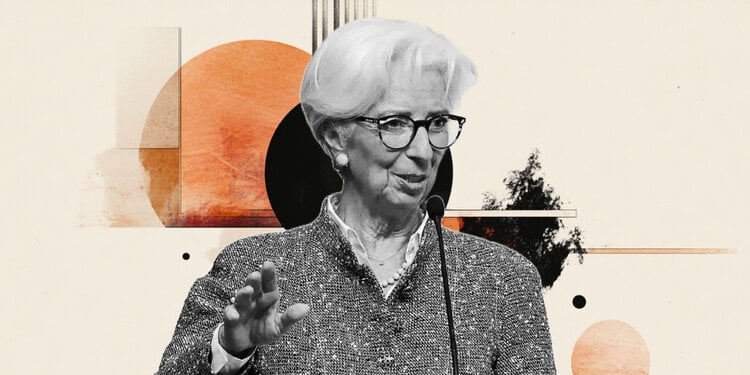European Central Bank (ECB) President Christine Lagarde said on Friday that with US President Donald Trump’s extension of his trade war to nearly every country, we must question the links of dependency that we have with each other and, in certain matters, with the United States.
Key quotes
“Warned that international trade will be changed forever by the tensions over tariffs.”
“While it is fairly obvious that international trade will never be the same again, it’s also pretty clear that there will be further negotiations.”
“Said that with Trump’s extension of his trade war to nearly every country, we must question the links of dependency that we have with each other and, in certain matters, with the United States.”
Market reaction
At the time of writing, EUR/USD is trading 0.01% higher on the day at 1.1283.
ECB FAQs
The European Central Bank (ECB) in Frankfurt, Germany, is the reserve bank for the Eurozone. The ECB sets interest rates and manages monetary policy for the region.
The ECB primary mandate is to maintain price stability, which means keeping inflation at around 2%. Its primary tool for achieving this is by raising or lowering interest rates. Relatively high interest rates will usually result in a stronger Euro and vice versa.
The ECB Governing Council makes monetary policy decisions at meetings held eight times a year. Decisions are made by heads of the Eurozone national banks and six permanent members, including the President of the ECB, Christine Lagarde.
In extreme situations, the European Central Bank can enact a policy tool called Quantitative Easing. QE is the process by which the ECB prints Euros and uses them to buy assets – usually government or corporate bonds – from banks and other financial institutions. QE usually results in a weaker Euro.
QE is a last resort when simply lowering interest rates is unlikely to achieve the objective of price stability. The ECB used it during the Great Financial Crisis in 2009-11, in 2015 when inflation remained stubbornly low, as well as during the covid pandemic.
Quantitative tightening (QT) is the reverse of QE. It is undertaken after QE when an economic recovery is underway and inflation starts rising. Whilst in QE the European Central Bank (ECB) purchases government and corporate bonds from financial institutions to provide them with liquidity, in QT the ECB stops buying more bonds, and stops reinvesting the principal maturing on the bonds it already holds. It is usually positive (or bullish) for the Euro.

